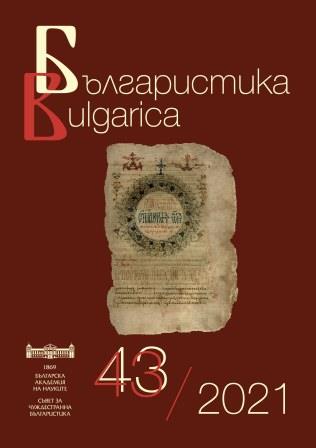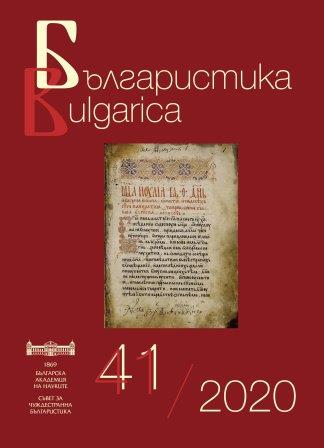
We kindly inform you that, as long as the subject affiliation of our 300.000+ articles is in progress, you might get unsufficient or no results on your third level or second level search. In this case, please broaden your search criteria.




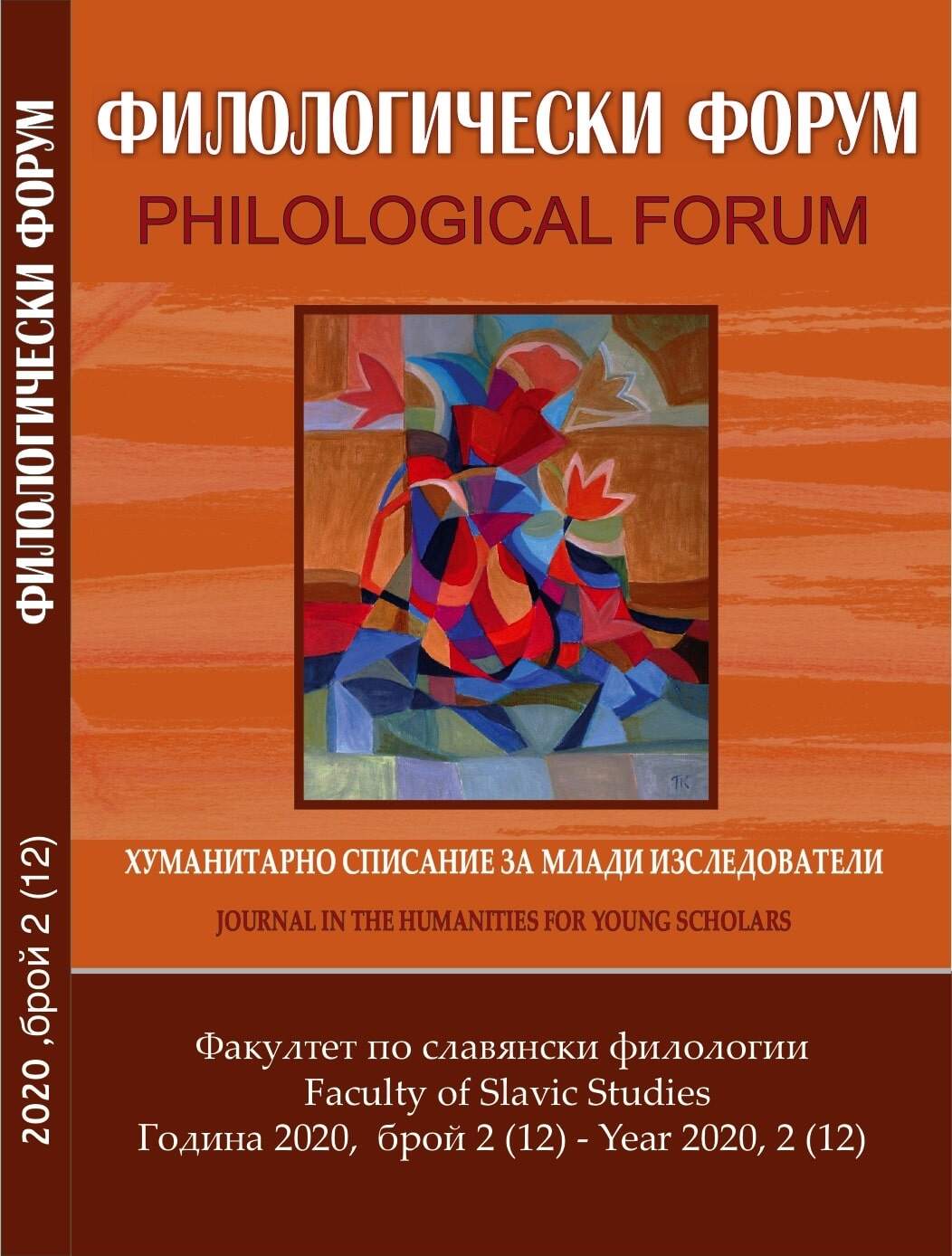
The Homily In decollationem Praecursoris et Baptistae Joannis, et in Herodiadem (BHG 859/CPG 4570), which is often attributed to John Chrysostom, was translated in the early Old Bulgarian period. The present article examines the text-critical tradition of the Old Bulgarian translation based on three copies of the Homily on the Beheading of St. John the Baptist which are preserved in calendar collections. Differencies in text completeness and lexical variants are traced in the three sources. The analysis shows that the Jagicev Zlatoust contains the most individual features and ms Cetinje 50 has the least deviations from the prototranslation. The last mentioned copy shares a lot common variant readings with the Mihanović homiliary, which leads to the idea that they belong to the same branch of the manuscript tradition, although they do not originate from the same prototype.
More...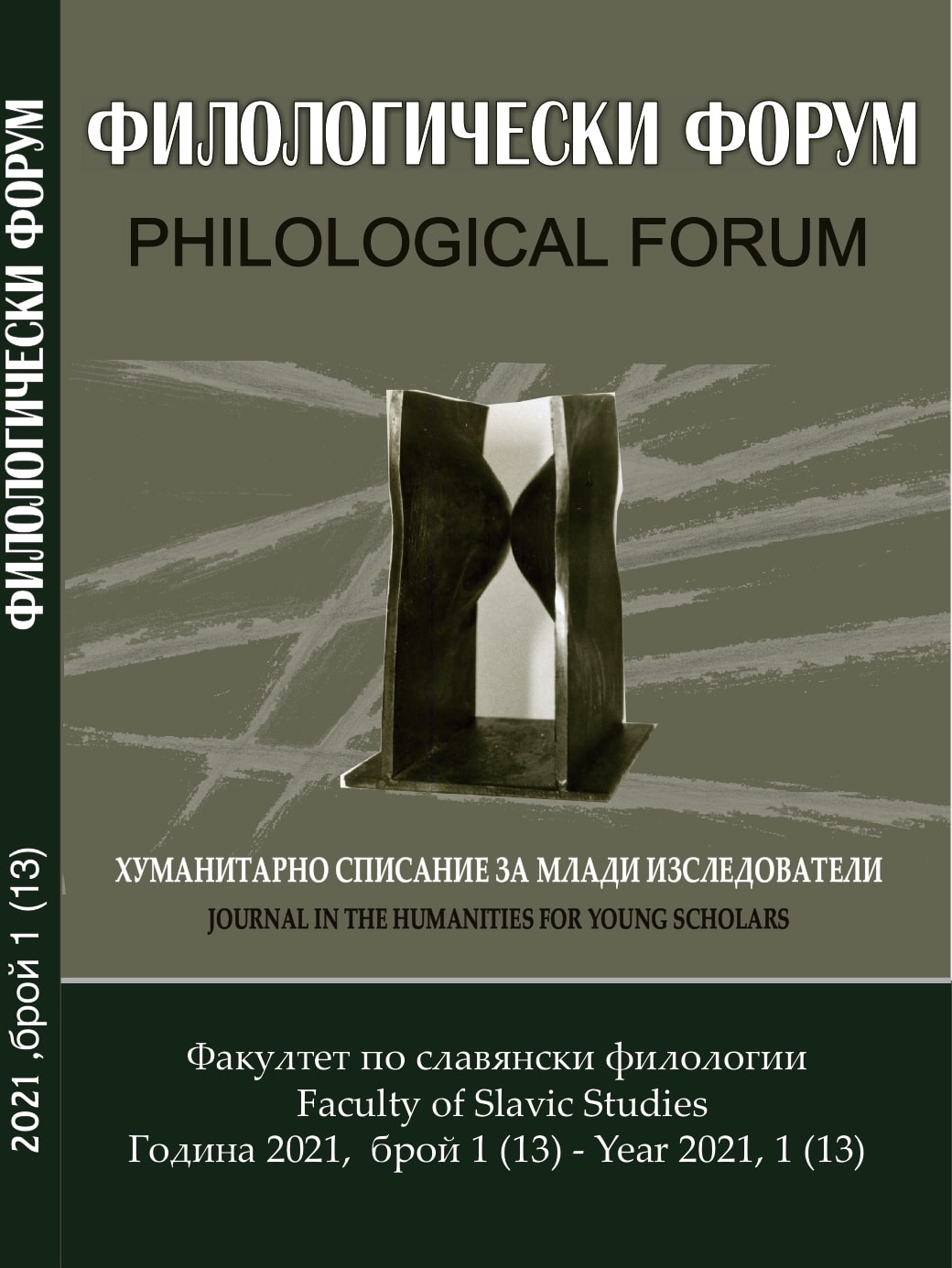
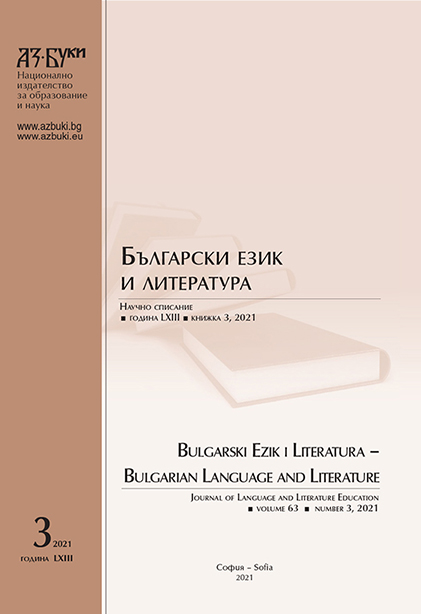
In "Kafka's Reception in Bulgaria until 1989" Mladen Vlashki combines the modern theory of cultural transfer with the sociological theories of the field and with the system theory. The monograph presents the most essential characteristic of the writer's work, against the background of which the hypothesis of future difficulties in front of Kafka's reception in view of the literary field in Bulgaria acquires density. A solid reconstruction of the trajectories of Kafka's reception in France, England and the United States has been made, which imposes it as a classic of modernity. Compared to the reception in other socialist countries and in the context of the Cold War, additional factors determining the Bulgarian reactions are revealed. Emphasis is placed on the "cases" Minko Nikolov and Dimitar Stoevski.
More...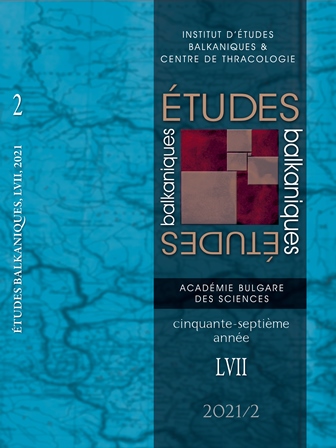
Lubomir Guentchev’s work holds a special place in Bulgarian literature and in 20th century French-speaking European literature. This author was born on November 26, 1907 in Pazardzhik, Bulgaria. He died on August 28, 1981 in Plovdiv. He has always lived in Bulgaria. He has never been to France. Yet he left a work written in a remarkable French language. He also wrote in Bulgarian. In total, in several stages, a collection of seventy-six manuscripts, left in French and Bulgarian by Lubomir Guentchev, was found between 1999 and 2005, whose proofing was completed in 2020. Ten volumes of his Écrits inédits (“Unpublished Writings”) have been published in France since 2003. How does this unique work appear? How were these manuscripts analyzed? What finds have been made? What about the translations, poetic creations and lyrical dramas those constitute the material?
More...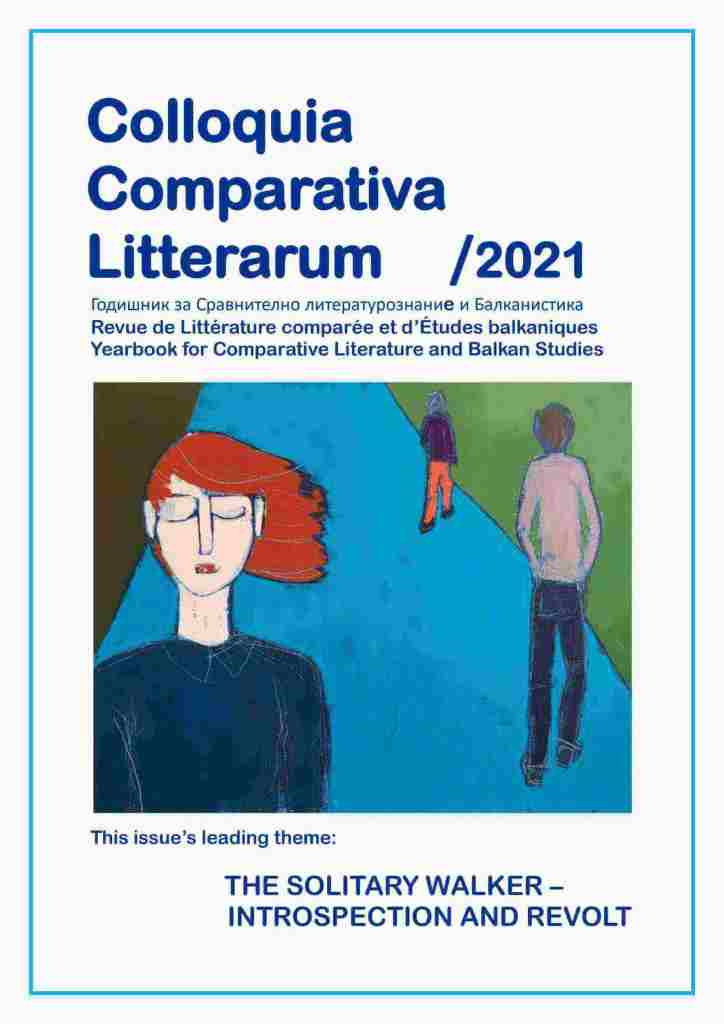
Book review: Christakoudy, Fotiny. Problems of Greek Literary Development 1880-1930. (Studies on Modern Greek Poetry). Sofia, Ni plus, 2020, 255 p.]
More...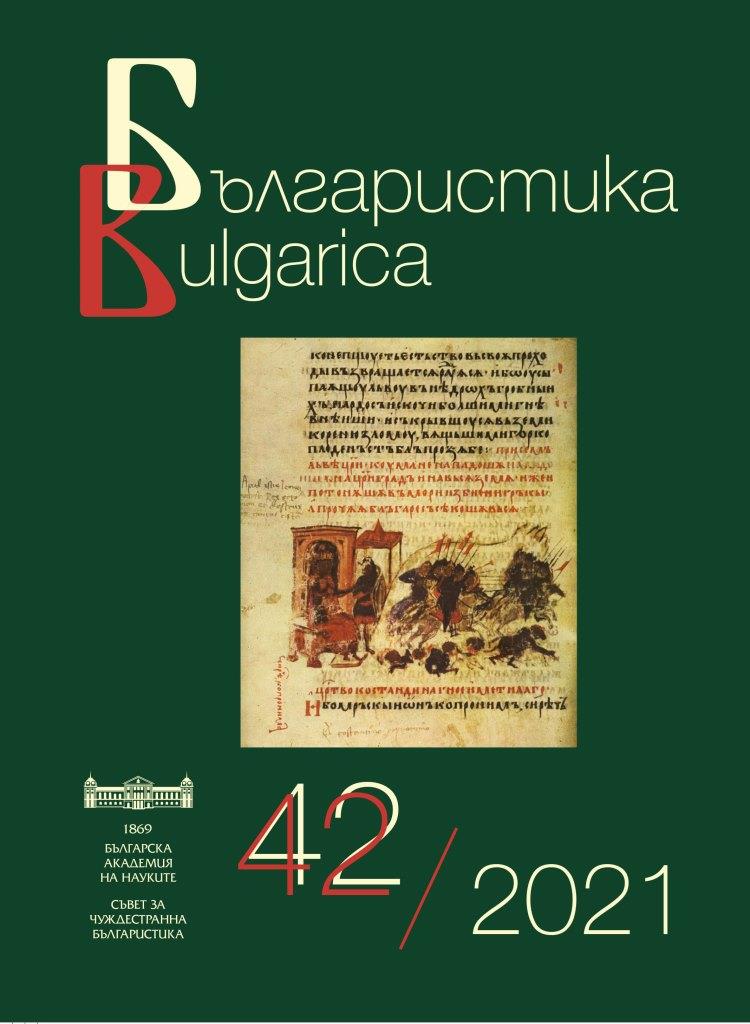



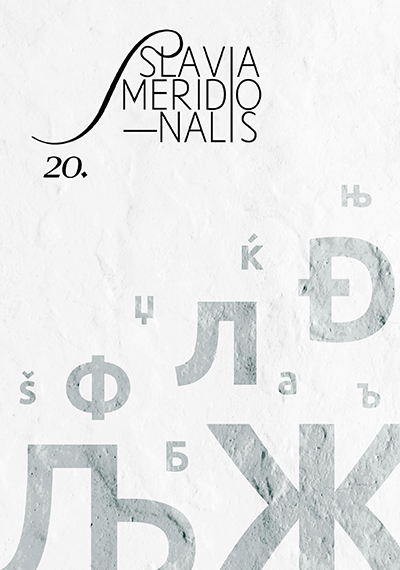
This article follows the personal and artistic relations between two famous Bulgarian poets and mystics, Ivan Grozev and Nikolay Raynov. Before 1944, the lives of both passed under the common sign of Orthodox Christianity, spiritualism, Theosophy, and Freemasonry. A separation took place after 1944, when Raynov rejected all forms of religiosity. At first, their relationship was good, but later it came into sharp conflict. The first words of criticism were spoken by Grozev, concerning Raynov’s translation of Thus Spoke Zarathustra by Nietzsche. The further polemics, on the one hand, had a significant impact on some of the intellectual elite in Bulgaria; on the other hand, they illustrate the changing attitude of both writers to religiosity. The source material is archives, memoirs and autobiographies, which reveal the dialogicality in Bulgarian literature in the first half of the 20th century.
More...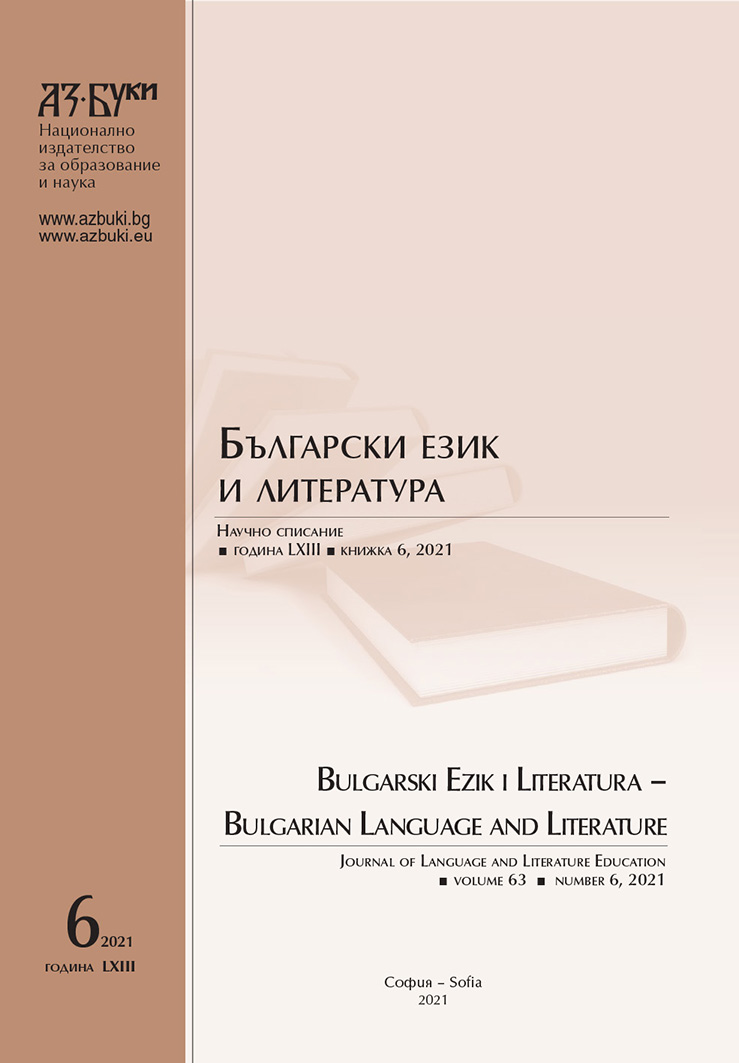
The article traces the sociological picture of the Bulgarian village in the period between the two world wars. Social strata and mental attitudes are deciphered, the economic basis of the crime is traced.
More...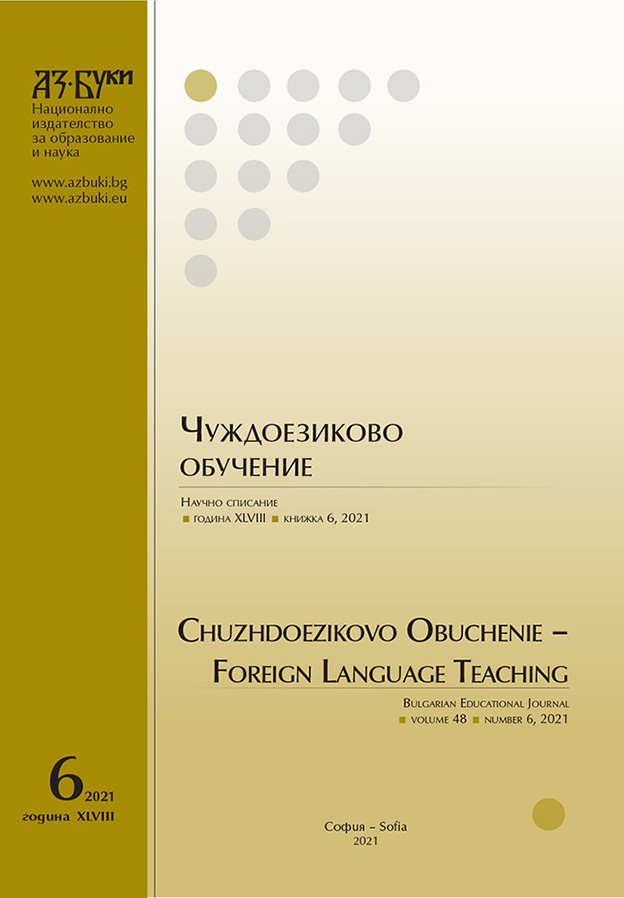
The article has a cultural-historical character, aiming to briefly present the biography and the first steps in art of an unfamous Bulgarian artist - Peter Dachev, as 2021 marks 125 years since his birth. What is taken into consideration are the reviews for his debut solo exhibition in Sofia in 1924, which impressed the art critics of the time with its originality and modernity. Special emphasis is placed on the artist’s presence on the pages of Plamak Magazine – an issue not previously taken into account. Based on archival information, it became known and commented that Peter Dachev made an attempt at fiction writing in Geo Milev’s edition, where the artist wrote under a pen name. The study is richly illustrated, with some of the images being published for the first time.
More...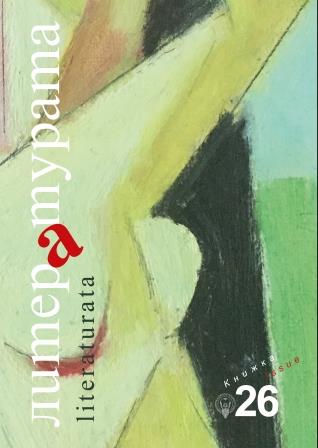
Where does Bulgarian rap stand in relationship to Bulgarian literature? Where can we look for the roots of this artistic presence? What are the heroes, themes, and messages that Bulgarian rap-artists recreate in their work? The author seeks to answer these questions, through purposeful and accidental juxtapositions between the cultured and the “non”-cultured in Bulgarian poetry in the last thirty years.
More...
